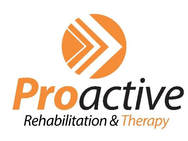| The body communicates through inflammation when something is wrong and needs healing. Whether it's an acute (recent) physical injury, an infection, or worn out cartilage in the joints, inflammation is on site. Swelling and stiffness causing pain prompts many to the doctor's office for a quick remedy to reduce the discomfort. In most circumstances, inflammation does its job, heals the problem, and clears, soon to be forgotten. However, there are situations when the body cannot effectively heal and inflammation is a recurrent theme. One such example is with autoimmune diseases; where the body goes into a state of chronic inflammation without any discernible cause. Autoimmune diseases are described as being idiopathic (cause unknown), as the mechanism of the disease is not fully understood. Doctors frequently treat the immune system as the problem as they do not yet understand the physiology producing the inflammation; As a result, the term "autoimmune" has become a popular buzzword used to describe a large group of quite diverse inflammatory conditions. What has become clearer in recent years in the medical field is that inflammation can be managed by directly targeting and weakening the immune system. However, by doing so the body becomes more susceptible to infections, aging, and cancer. Immunomodulation (manipulating the immune response) can alternatively be performed in a safer fashion in which wellness and health are promoted; thereby reducing malignancy (illness) rates compared to the general population vs. matching or increasing them. The "trigger elimination" method has been demonstrated as one effective approach for controlling the immune response. Once the trigger of inflammation for an autoimmune disease is known immunosuppressive therapies, such as Humira or Imuran, are no longer recommended. Coeliac disease, for example, is a known allergic autoimmune condition in which the immune system damages the microvilli of the intestines when gluten is consumed. Once gluten is removed from the diet the immune system shuts off the inflammatory process and the body considers the digestive system healed. | "Doctors frequently treat the immune system as the problem as they do not yet understand the physiology producing chronic inflammation." "The immune system is not 'out of control', but rather failing at attempts to heal and protect the body." "Alternatives to pharmaceuticals offer a safe and viable course of action for achieving remission from autoimmune disease symptomology." | Recent studies on harmful bacterial growth in the digestive tract, leaky gut syndrome, and/or oxidative stress (damaged cell structures) triggering inflammatory responses demonstrate that the immune system (in many cases) is not "out of control", but rather failing at attempts to heal and protect the body. Some treatment approaches used successfully to halt autoimmune disease symptoms have been performed through dietary changes, caloric restriction, or monitored fasting. Studies in these areas reveal that changes in diet and use of probiotics have the potential to eliminate harmful bacterial growth in the intestines. When combined with lifestyle changes (healthy living) reversal of cellular damage in the affected areas of the body can occur bringing about remission from the symptoms of inflammation. Conclusion: Alternatives to pharmaceuticals offer a safe and viable course of action for achieving remission from autoimmune disease symptomology. Seek professional assistance and give your body the tools it needs to heal through diet, exercise, and lifestyle changes. Advocating for your health, David Chochinov, O.T. Reg. (MB) References: -Bongartz T, Sutton AJ, Sweeting MJ, et al. Anti-TNF antibody therapy in rheumatoid arthritis and the risk of serous infections and malignancies. Journal of the American Medical Association. 2006;295:2275-2285. http://jama.jamanetwork.com/article.aspx?articleid=203993 -Kes VB, et al. The role of complementary and alternative medicine in therapy of multiple sclerosis. Acta Clin Croat. 2013 Dec;52(4):464-71. [PubMed] -Liu Y et al. Cutting edge: fasting-induced hypoleptinemia expands functional regulatory T cells in systemic lupus erythematosus. J Immunol. 2012 Mar 1;188(5):2070-3. [PubMed] http://www.ncbi.nlm.nih.gov/pmc/articles/PMC3749767/ -Immunobiology. 2011 Sep;216(9):1010-7. doi: 10.1016/j.imbio.2011.04.001. Epub 2011 Apr 13. [PubMed] http://www.ncbi.nlm.nih.gov/pubmed/21601309 -Neurology February 12, 2013; 80(Meeting Abstracts 1): P03.232 [PubMed] http://www.neurology.org/cgi/content/meeting_abstract/80/1_MeetingAbstracts/P03.232 -Collins SM, A role for the gut microbiota in IBS. Nat Rev Gastroenterol Hepatol. 2014 Apr 22. doi: 10.1038/nrgastro.2014.40. [Epub ahead of print] -Vieira S1, Pagovich O, Kriegel M., Diet, microbiota and autoimmune diseases. Lupus. 2014;23(6):518-26. doi: 10.1177/0961203313501401 [PubMed] -Fuhrman, J. (1995) Fasting and Eating for Health. New York: St. Martin's Press. |
|
0 Comments
|
AuthorDavid Chochinov is a private practitioner in the field of occupational therapy, mental health counsellor, nutrition consultant, and an advocate for the prevention of elder abuse. Archives
March 2017
Categories |

 RSS Feed
RSS Feed